Mastering Content: How to Increase Your Readability Score

Ever clicked on an article and felt overwhelmed within seconds?
You're not alone. Today, I'm diving deep into the magic of readability score and its profound impact on user engagement and SEO. And trust me, by the end of this, you'll be rethinking your entire content strategy.
The Big Deal About Readability
Imagine pouring hours into crafting the perfect article, only to see readers bounce off after the first few lines. Heartbreaking, right?
Your content's readability might be the silent culprit. In one of my deep dives, I discovered a gem from SearchEngine Journal that revealed pages with higher readability scores ranked better and had lower bounce rates. Mind-blowing, right?
What is Readability?
Readability isn't just a buzzword. It's about how effortlessly your audience can digest your content. Tools and algorithms, like the Flesch-Kincaid Grade Level, dissect factors like sentence length and word choice to assign scores.
The higher the score, the more reader-friendly your content. And if you're scratching your head thinking this is rocket science, hang tight. I've got a toolkit that'll be your game-changer.
Your Must-Have Readability Toolkit
Over the years, I've played around with countless tools. Some were gold, others... not so much. But here's my curated list that never lets me down:
Hemingway Editor
Picture this as your content's personal gym trainer. It flags down complex sentences, passive voice, and even dishes out a readability grade. Try to write your content using Hemingway App
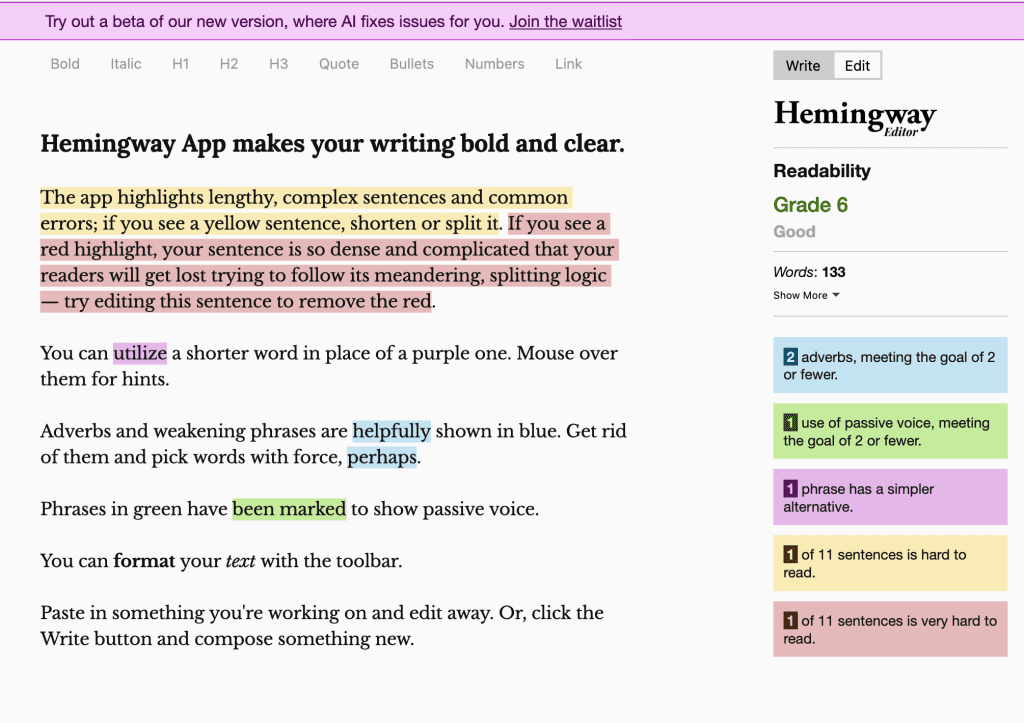
Grammarly
Grammarly is more than just a grammar geek. It's that buddy who ensures your content is on point and resonates with your audience.
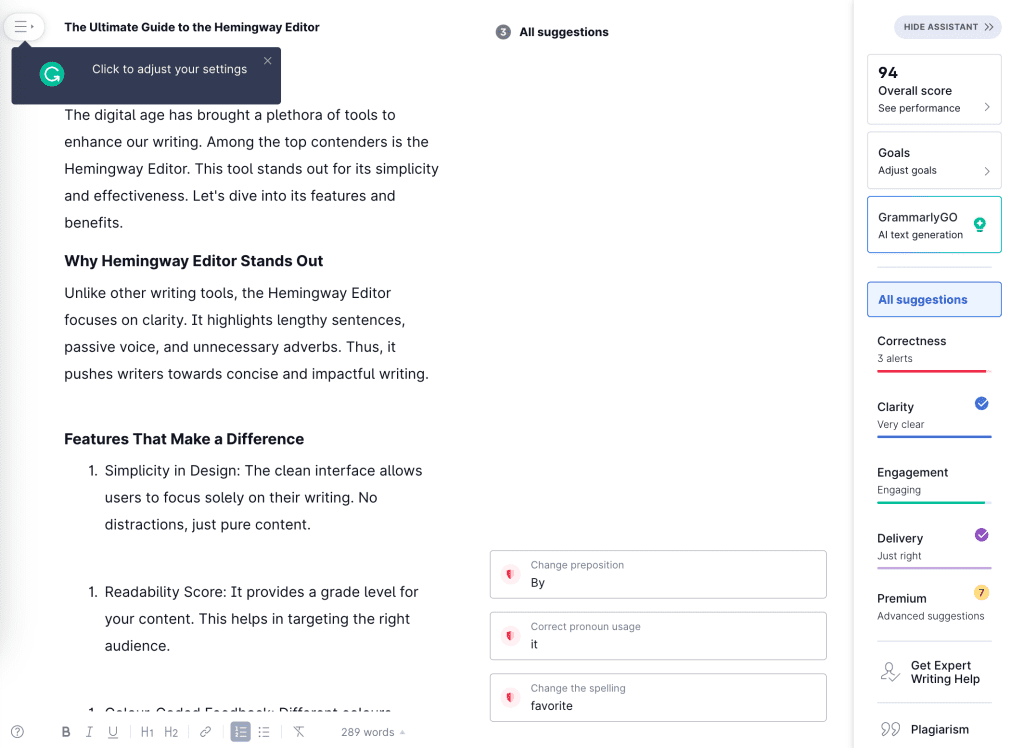
ProWritingAid
Think of this as your content's health check-up. From readability to style, it's got you covered.
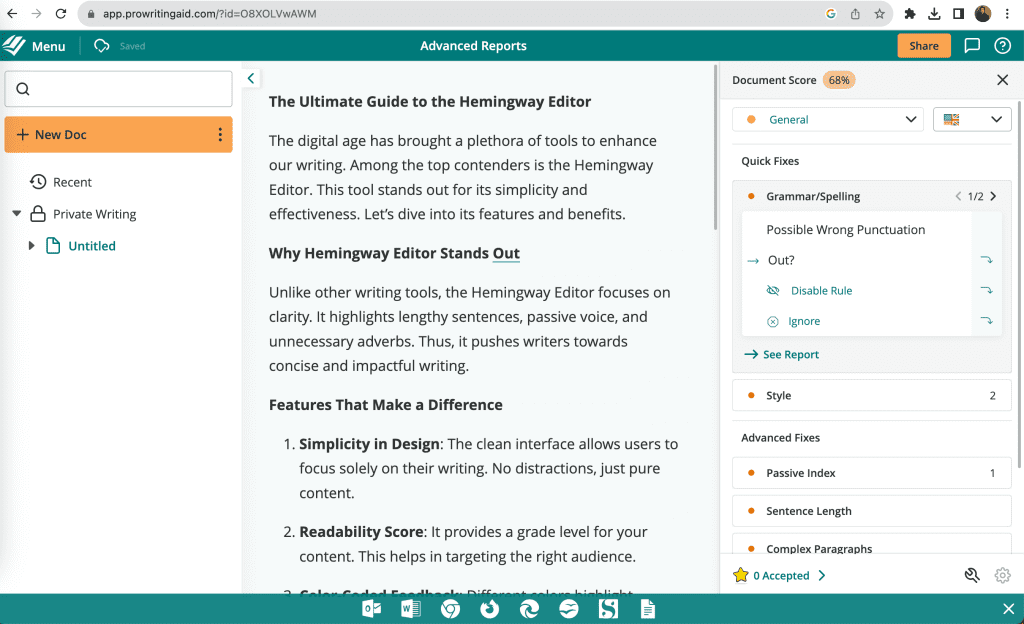
Readable
Readable evaluates text using various readability formulas and provides feedback on how to improve.
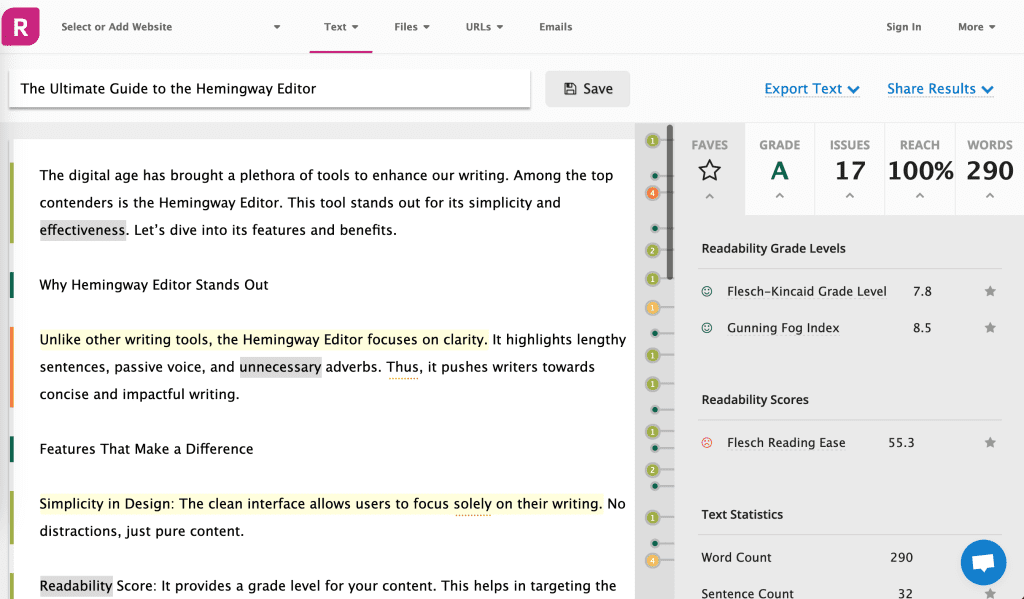
Slick Write
SlickWrite offers detailed feedback on your writing's flow, structure, Quotes, Vocabulary and readability.
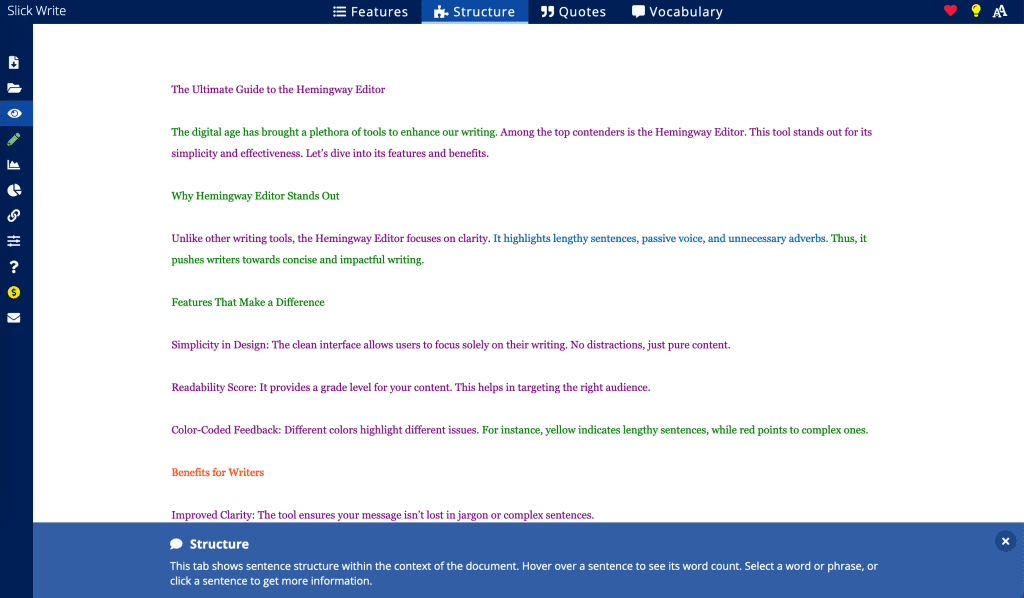
TextRazor
Beyond readability, TextRazor provides insights into grammar, punctuation, and writing style.
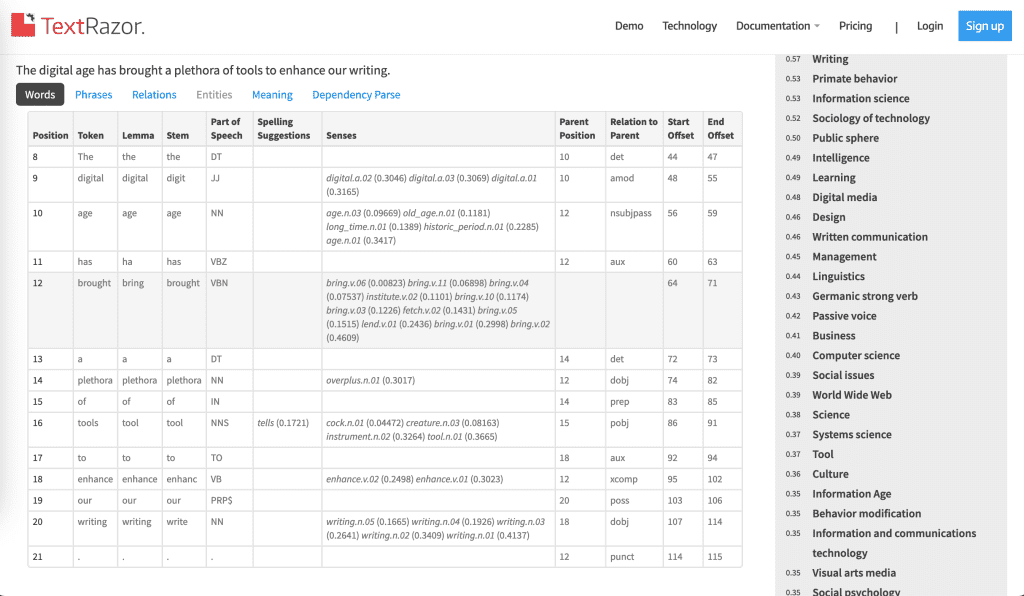
Gunning Fog Index
Gunning Fog Index online tool calculates the number of years of formal education a reader would need to understand your content.
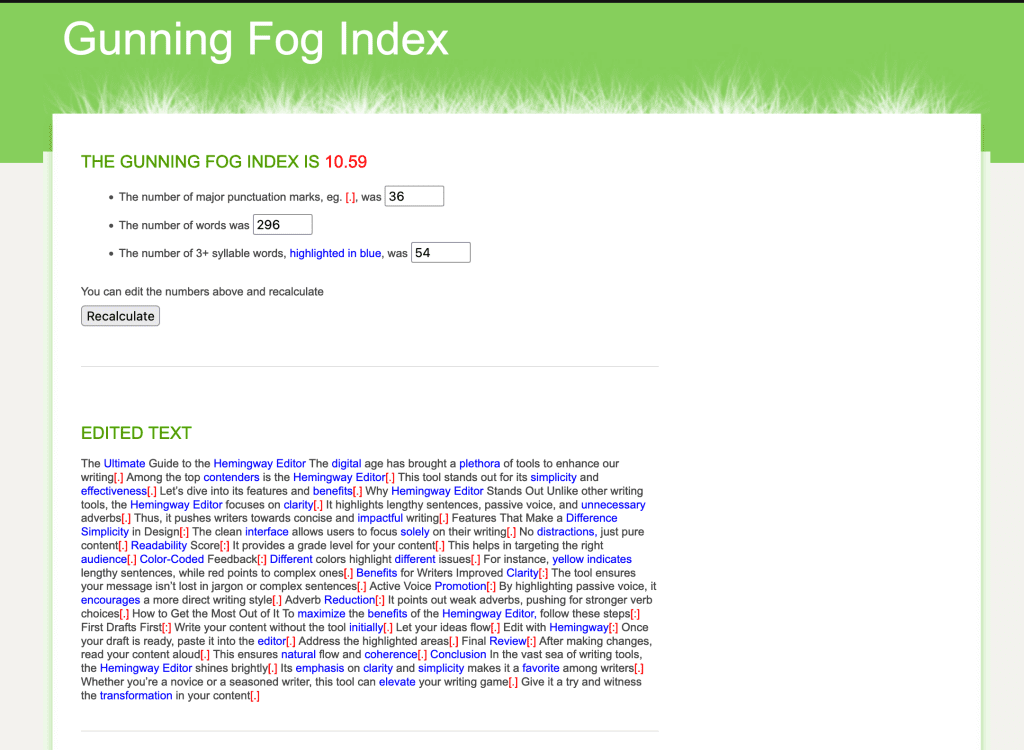
Readability Formulas
ReadingFormulas site offers seven different tools to test readability, making it a versatile choice.
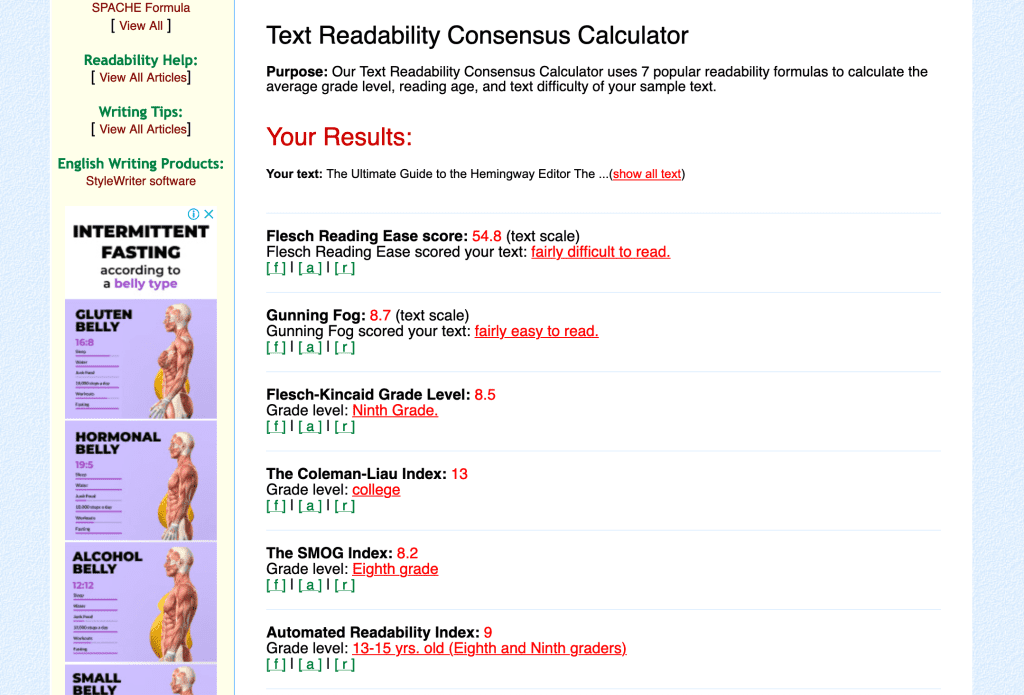
SiteSEO Report Tool
The SiteSEO Report Readability tool calculates the score based on 7 different readability algorithms.
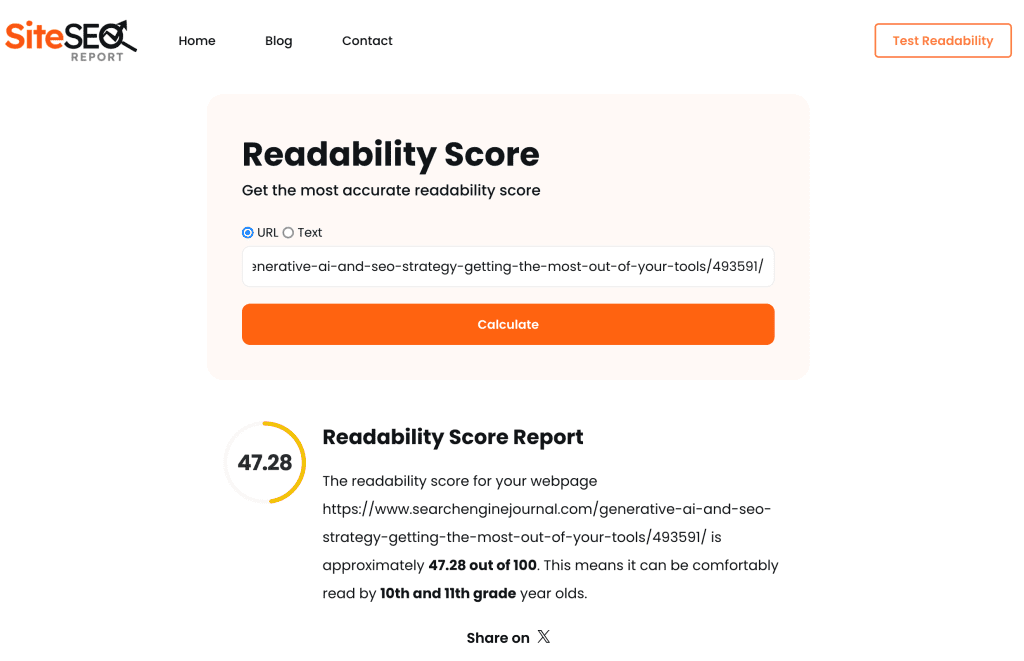
Legibility vs. Readability: What's the Difference?
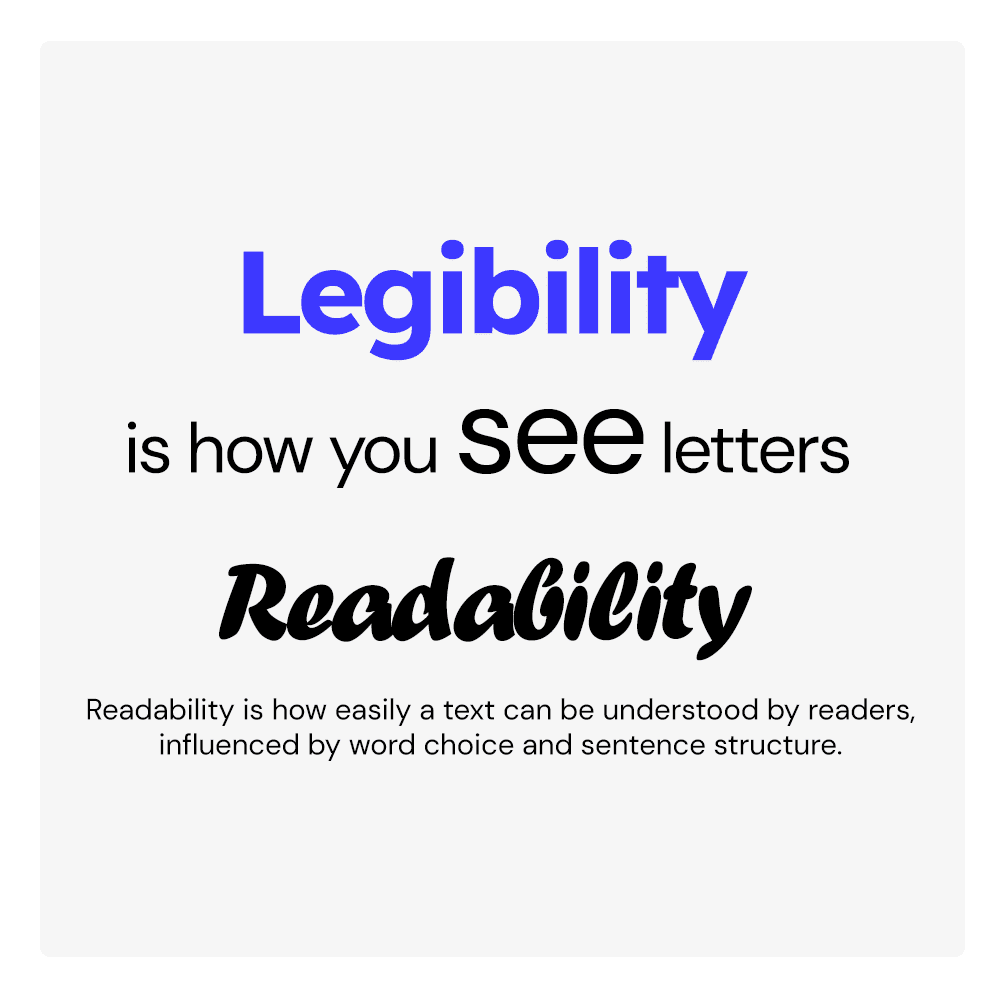
Here's a curveball many don't see coming. Legibility and readability, while related, aren't the same. Legibility is about how easily you can distinguish letters and words.
Legibility refers to the design and layout aspects of written content. It's about how easily individual characters or words can be recognized. Factors influencing legibility include:
- Font choice
- Font size
- Line spacing
- Color contrast
- Letter spacing
For instance, a light gray font on a white background may be hard to decipher, affecting legibility.
Readability, on the other hand, deals with the comprehension of the content. It's about how easily sentences and paragraphs can be understood. Factors influencing readability include:
- Sentence length
- Word choice
- Content structure
- Use of subheadings and bullet points
In essence, while legibility is about the physical appearance and recognition of the text, readability is about understanding the content's message.
To create effective content, both legibility and readability must be considered. A legible piece that's hard to understand won't engage readers, and a readable piece that's hard to see won't be read in the first place.
Readability Across Different Platforms
Different platforms cater to different audiences, and readability preferences can vary. For instance, academic journals have a different readability standard compared to blog posts.
Similarly, what works on a website might not be suitable for social media platforms like Twitter or Instagram. It's essential to tailor your content's readability based on the platform.
Tools like SEMRush offer platform-specific readability insights, helping content creators optimize accordingly.
The Role of Readability in Content Marketing
In the realm of content marketing, readability plays a pivotal role. It's not just about getting your message across; it's about doing so efficiently.
According to Time, English Professor Eric D. Hirsch from the University of Virginia developed a criteria for assessing the "comparative ease of reading" in writing. To put it simply, the easier and quicker it is for someone to read a document, the more readable it is considered.
Real-world Impact: A Case Study
Let's get real for a second. I came across a case study of a tech firm that revamped their content, focusing purely on readability. The result? A whopping 50% spike in organic traffic and a 35% jump in on-page time. If that doesn't scream the power of readability, I don't know what does.
Your Action Plan
Alright, let's get you started on supercharging your content's readability:
- Audit Your Content: Use tools like Hemingway Editor or Grammarly to get a readability score.
- Simplify: Break down complex sentences. Ditch the jargon.
- Format: Use subheadings, bullet points, and visuals to break up your content.
- Test and Iterate: Regularly check your analytics. See how changes in readability impact user engagement and tweak accordingly.
Wrapping Up: Your Content's New Best Friend
So, there it is. Your roadmap to content that not only ranks but resonates. Now, I'm all ears. Have you ever played around with readability tools? Noticed a difference? Share your insights below. And hey, if this lit a bulb for you, spread the word!




